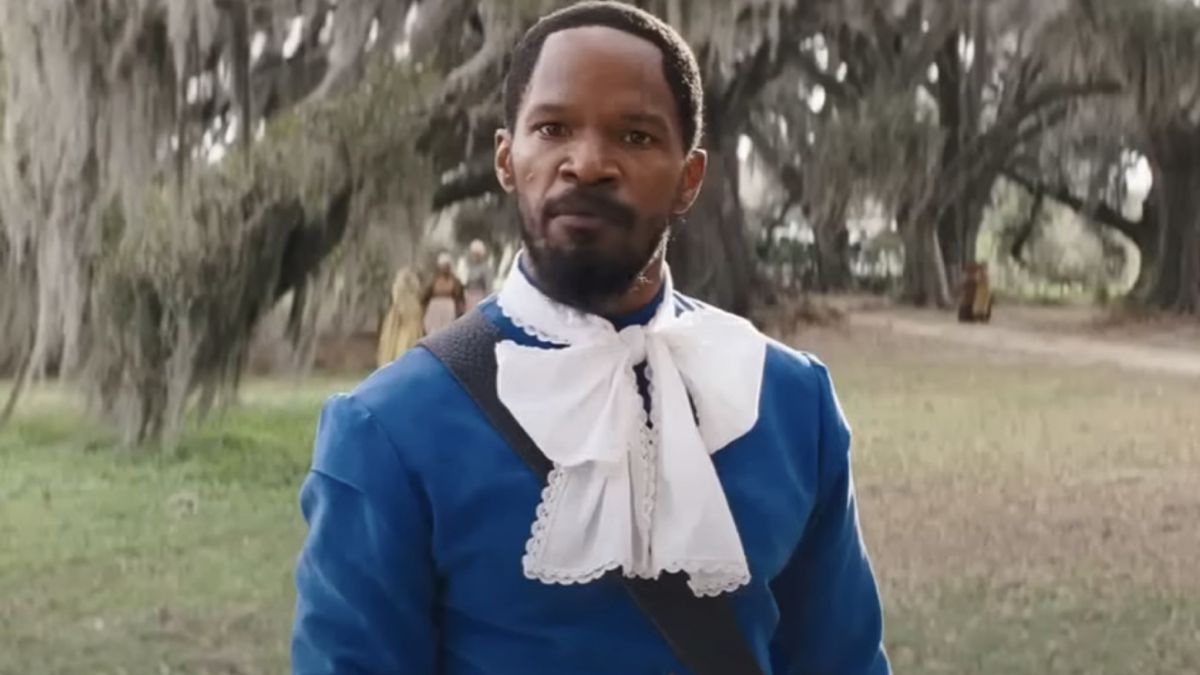Maybe I’m a masochist, but I’ve seen a lot of movies about slavery.
Harriet, Emancipation (pre-Bad Boys: Ride or Die Will Smith), Beloved, and of course, the Academy Award-winning 12 Years a Slave are all movies that I’ve sat through, and, if I’m being completely honest, suffered through.
However, do you want to know my all-time favorite movie on the topic of slavery? It’s 2012’s Django Unchained, which we once ranked as one of the greatest westerns of all time. Sure, it may be considered one of Tarantino’s lesser films in his legendary filmography, but I have to tell you. As a Black man who has seen his fair share of movies where Black people get beaten to a bloody pulp, Django Unchained is definitely my favorite. Here’s why.
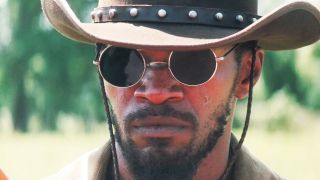
Most Slave Movies, While Important, Depress Me
Don’t get me wrong. I’m well aware of the importance of slave dramas. Similar to stories about the Holocaust, or movies about the horrors that Indigenous people had/have to go through, slave dramas showcase the lowest depths of depravity from humankind.
And yet, knowing this, I still choose to watch them. Of course, I’m viewing them from a historical perspective, and I’m not watching them for entertainment purposes. I mean, how could I enjoy them when they’re the kind of films that, when they’re over, I dab my eyes, and then go to the bathroom, solemnly.
Not so with Django Unchained, though. With this movie, I was practically punching the air, and mouthing, “Good,” whenever Django would shoot a slave owner, or blow up a plantation mansion.
Because, try as I might, I just can’t “see the good” in everybody. For instance, you know that famous scene in Gone With the Wind where Scarlett O’Hara goes to the site of the Battle of Atlanta and witnesses all those injuries? Well, I know that scene is supposed to evoke sympathy from the audience, but, as a Black man, I have no sympathy whatsoever. Because I view the Confederacy very differently than white people from the south likely view it. For me, the Confederacy represents the fight to uphold slavery.
And, it’s for that purpose that Django Unchained is so cathartic for me. Because sometimes, I don’t want a movie that explores race or social justice. Sometimes, all I want is satisfying escapism, and this is the purest example for me.
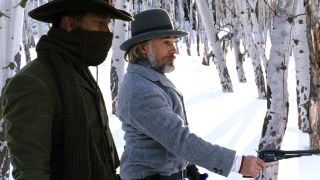
I’ll Never Forget The Audience I Originally Saw The Movie With
I remember when I saw Black Panther in theaters on opening weekend. There were definitely people of every race who came out to see it, as Black Panther was a cultural phenomenon.
But, there were overwhelmingly more Black people in the audience than any other race, as I saw whole families, from young children (maybe even too young, since I saw some babies in the audience), to the elderly. It was a touchstone moment for me, as just like when it came to voting for Obama, we Black people came out in droves for that movie.
That said, as much as I liked the film, it was a pretty safe movie. I mean, how could it not be, as it’s from the MCU? So, while there was all that talk of colonialism, and the idea that maybe Kilmonger was right (which cements him as one of the greatest Black villains of all time), there really wasn’t anything “dangerous” about the movie.
However, Django felt a bit different when I saw it, and I’ll never forget the audience that I saw it with. It was actually Christmas Day 2012, and I wanted to get away from my family, as they were slumbering after their Christmas lunch. So, I went to the movies, and I wasn’t alone, because there were hella Black people in the audience.
Since this was a Tarantino movie, there were also plenty of white people. But, much like with Black Panther, it was an overwhelmingly Black crowd. The thing is, there were several moments when I could tell that some of the white people in attendance were very uncomfortable, and this is where I could feel some empathy for them, since I know what it feels like to be uncomfortable in a crowd.
That said, the whole audience, both Black and white, were cheering when Schultz (played by the Academy Award-winning Christoph Waltz) killed Leonardo DiCaprio’s character, as well as when Django blew up Candyland, and rode off with Broomhilda. It was a great experience, and one that I will never forget.
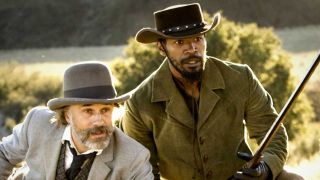
I Also Love How This Story Turns The White Savior Trope On Its Head
It’s a fact that Black people never would have escaped the horrors of slavery without the brave white abolitionists who saw the evils of the trade, and wanted to get rid of it. So, in a lot of ways, the Schultz character could have been seen as a white savior, since he’s the one who gets Django his freedom.
However, it’s not like Schultz is freeing Django out of the goodness of his heart. Instead, Schultz needs Django’s help in locating a bounty, and he is freeing him (and even giving him $75 to boot) for his help in locating the Brittle Brothers.
And, I absolutely love this! Tarantino is such a good storyteller, and I’m sure he knew that if Schulz rescued Django just for the sake of rescuing him, then it would be seen as a white savior story, which definitely wasn’t what Tarantino was aiming for.
What we end up with instead is a story about a Black man working with a white man for the benefit of the both of them. Schultz gets key information, and also a partner, and Django learns to better himself under Schultz’s tutelage and guidance. As somebody who is a firm believer in the benefits of diversity, this story really resonates with me. It sucked that Schultz had to die, but it made for a great revenge story, since Django wasn’t Schultz’s property. He was his partner, which I adore.
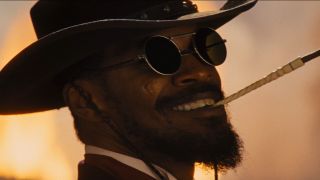
And It Actually Has A Happy Ending!
Lastly, the one thing I really detest about slave dramas is that almost all of them have depressing endings. This makes sense, since most stories involving slavery did end horribly. At best, we’ll get a separated family that is finally brought back together again, but that’s usually not the case, and we end up with something dark and horrific.
But, yet again, that’s not the case here, as not only does Django exact his revenge against those who’ve wronged him, but he also gets his wife back. This is in line with Tarantino’s other historical dramas, like Inglorious Basterds, where both Hitler and Goebbels die in a satisfying way, and like Once Upon a Time…In Hollywood, in which Sharon Tate doesn’t get brutally murdered.
Yes, some might see these revisionist histories as being a little tasteless. Hitler didn’t satisfyingly die in a movie theater in real life. Sharon Tate, unfortunately, didn’t get to live, and Django would most definitely eventually have been caught, and hanged from a tree to be made an example of.
However, I love that we don’t get that ending. We get a happy ending, which makes this one of the most satisfying conclusions to any movie that I’ve ever seen. Because this could have ended badly for him, and it didn’t. I remember smiling by the end of it all, which really is quite something. Because I can’t think of a single other slave drama where I’ve left the theater smiling.
What do you think? Did you also love Django Unchained as much as I did?
